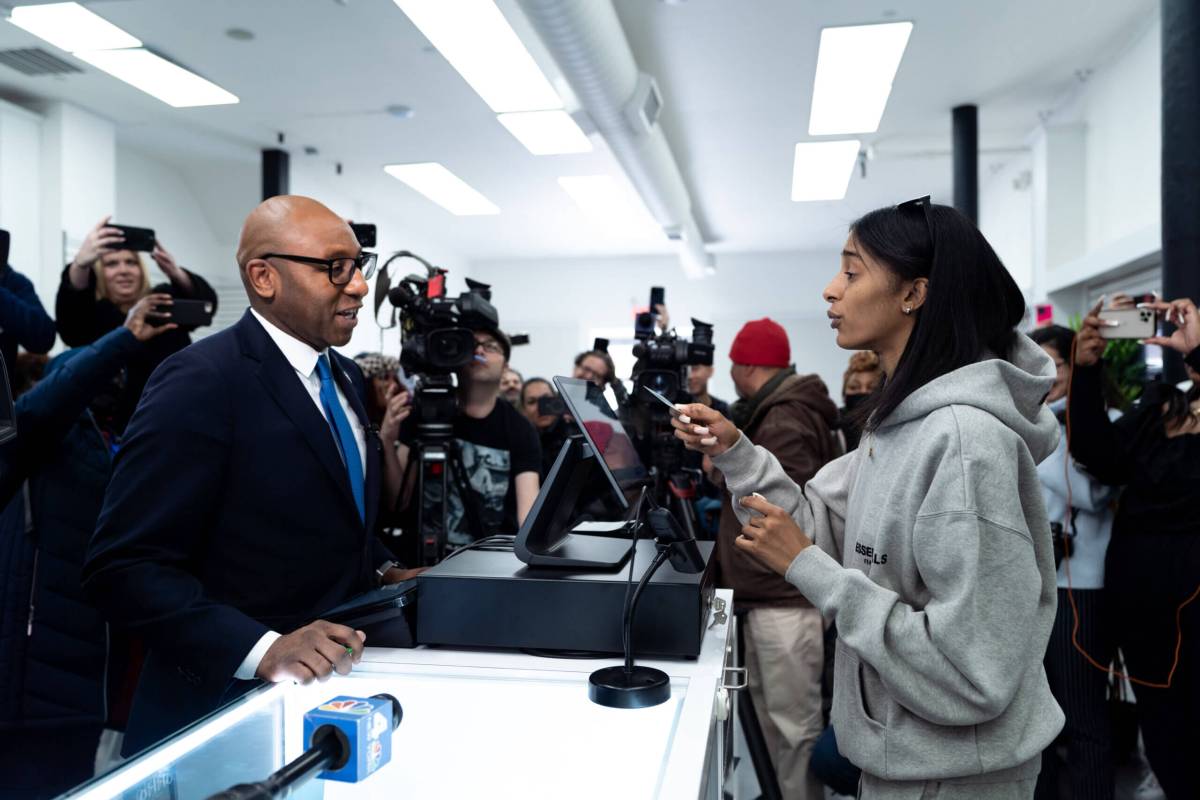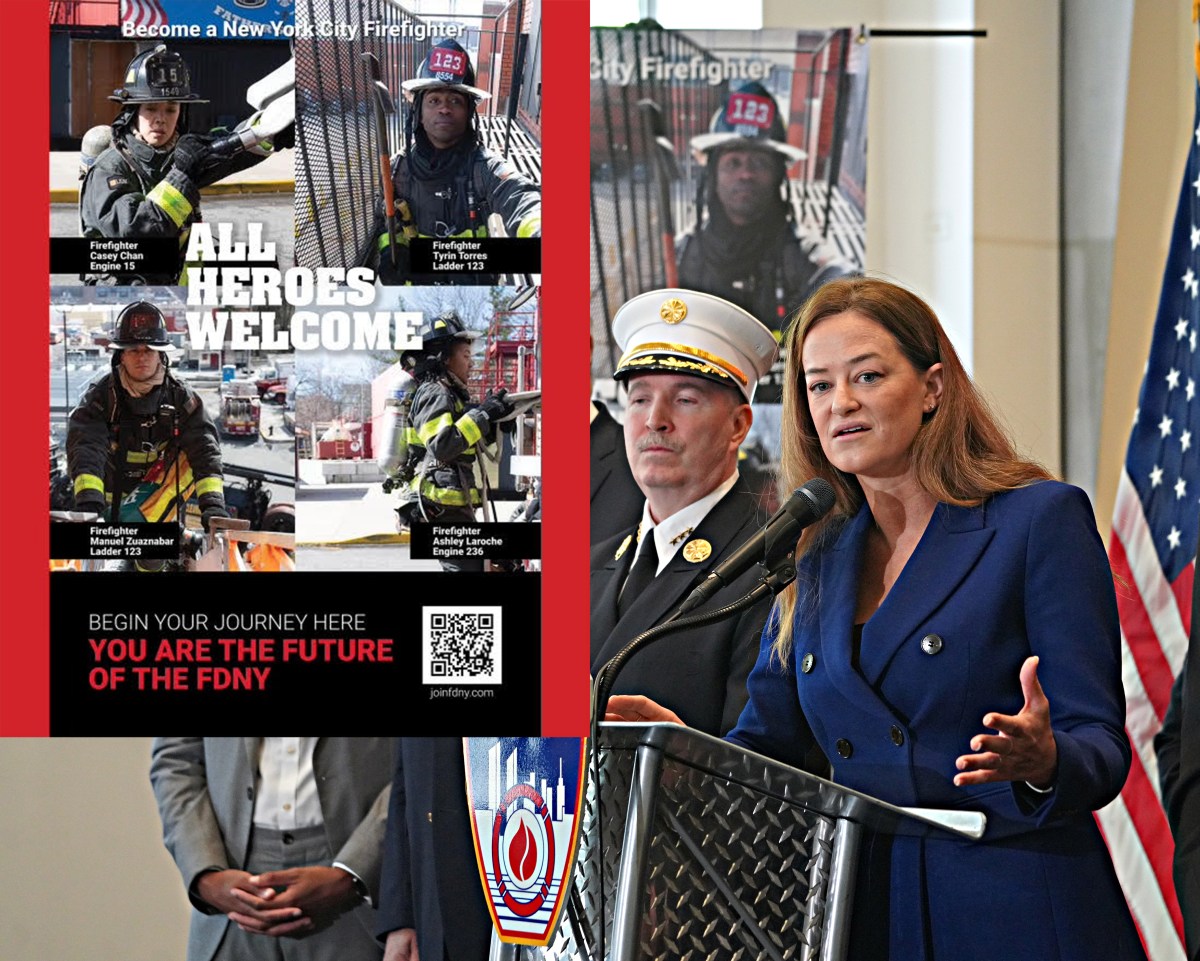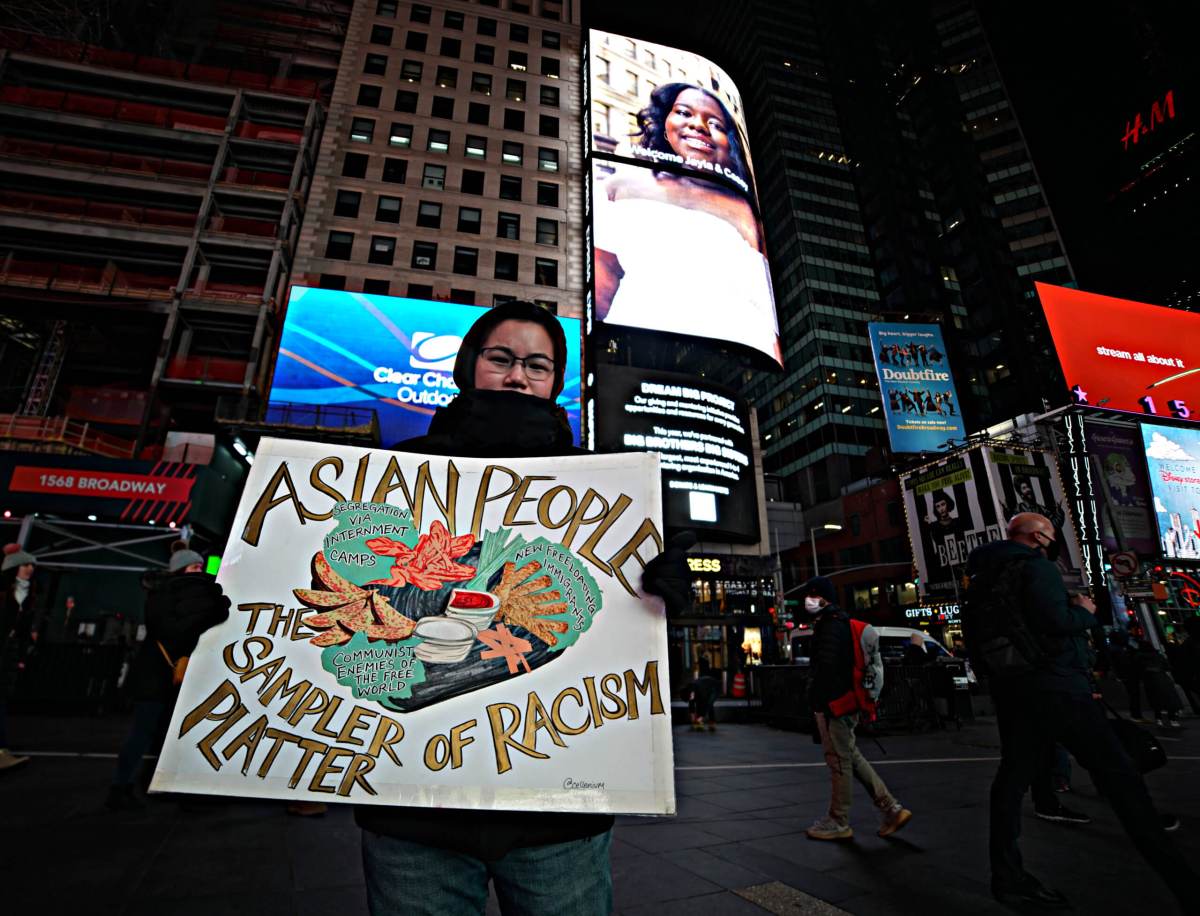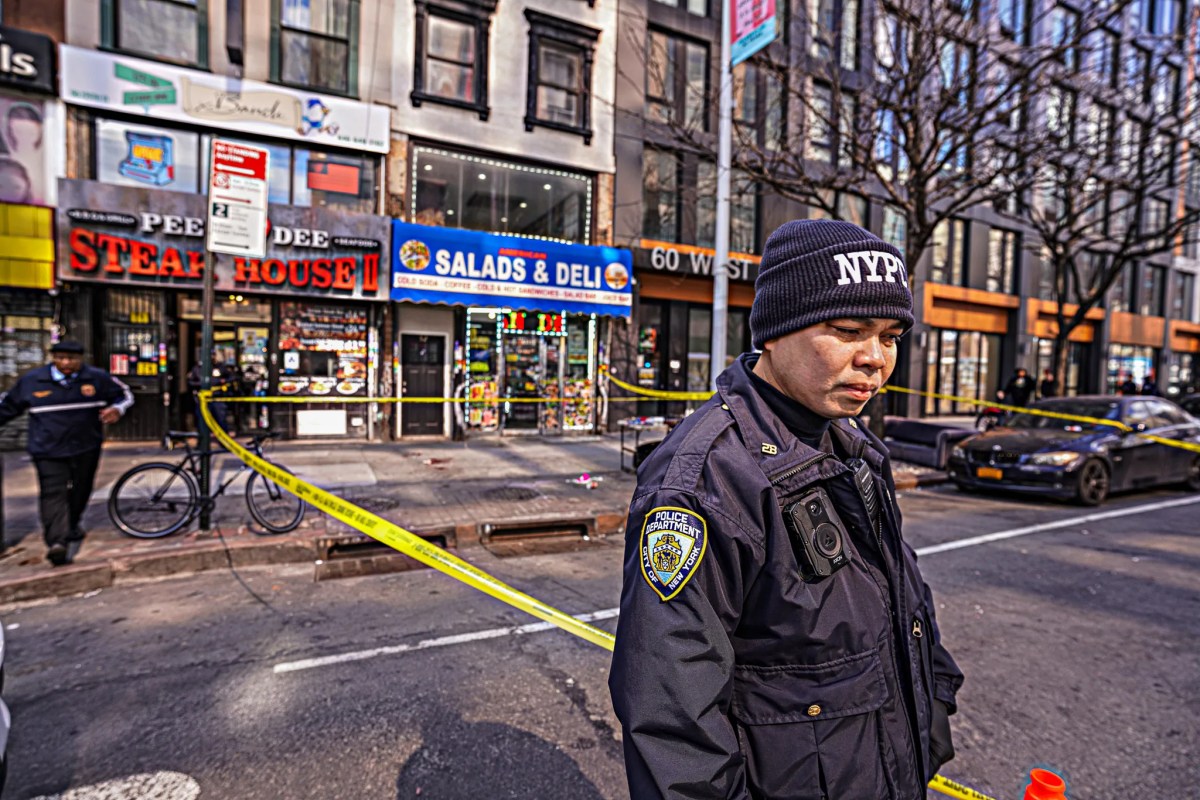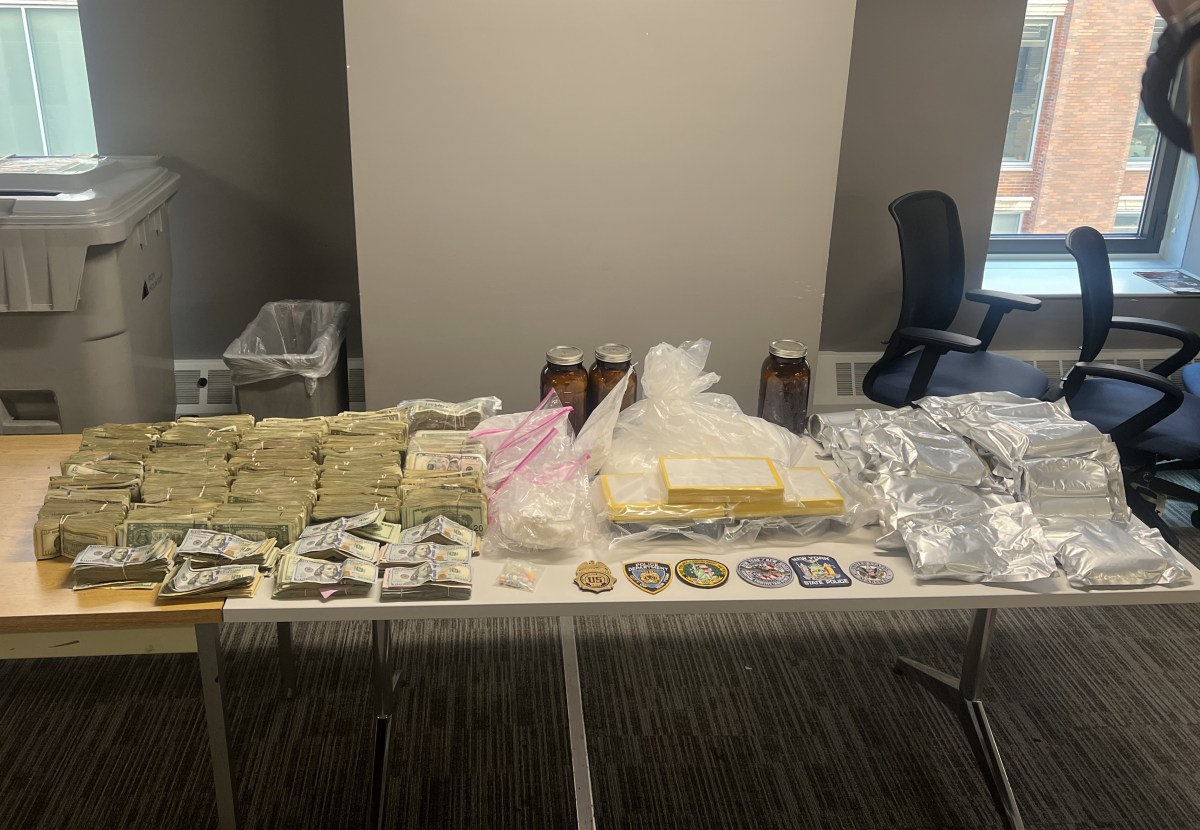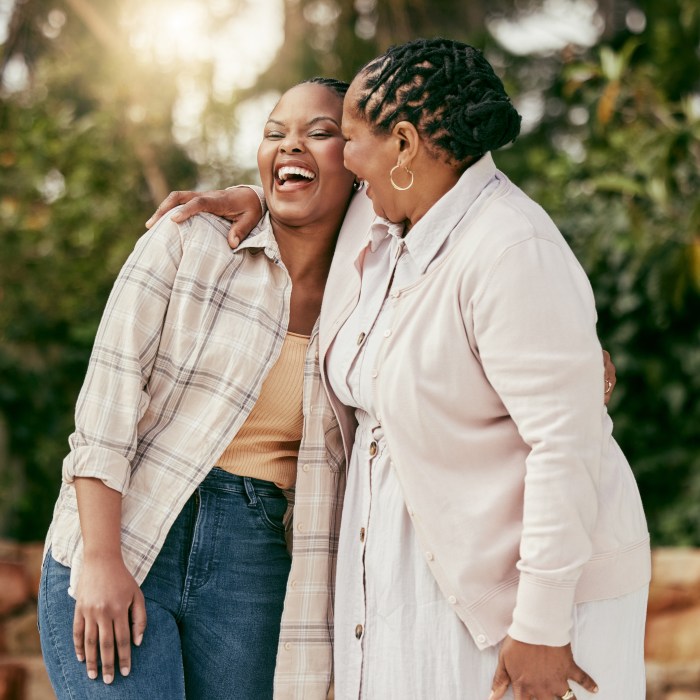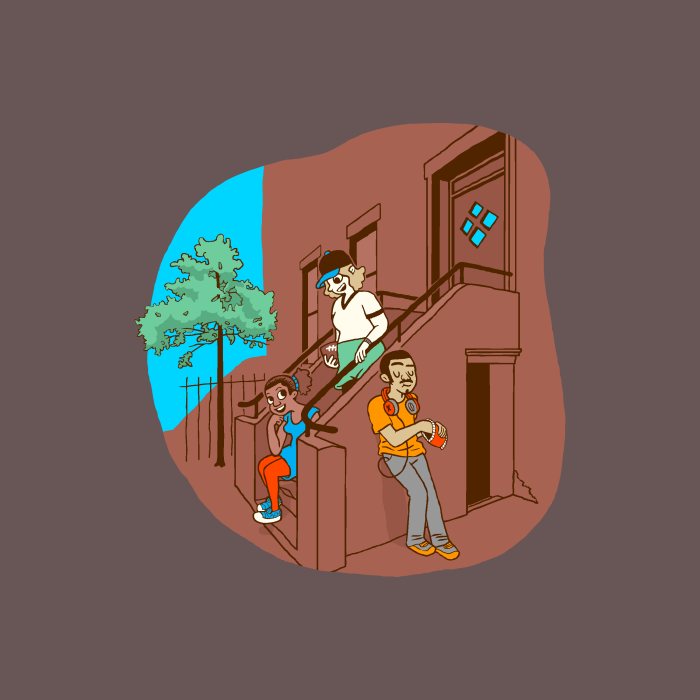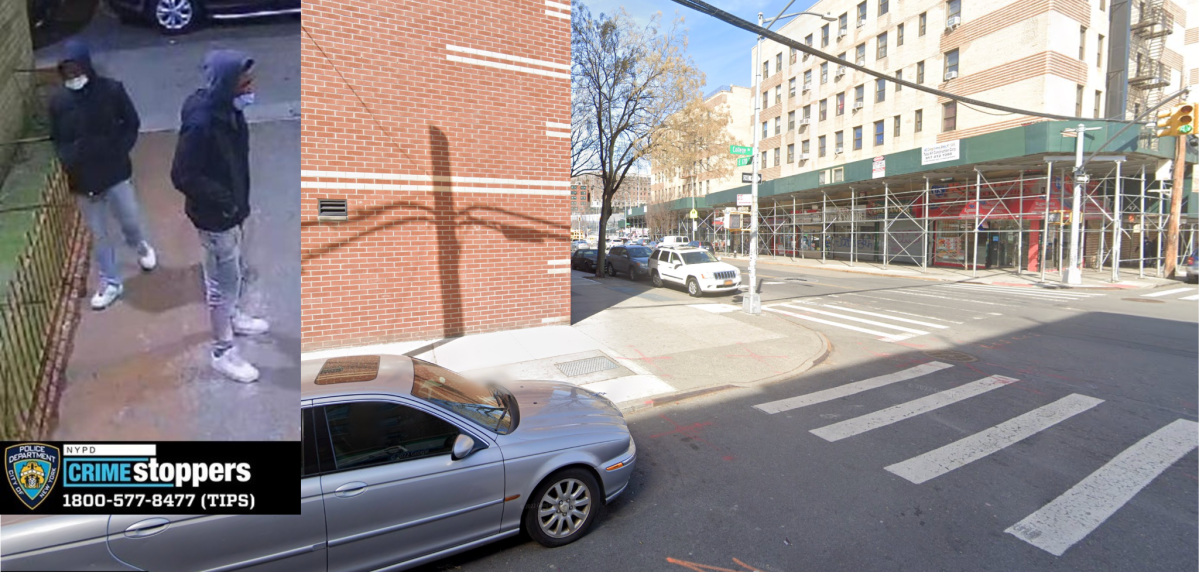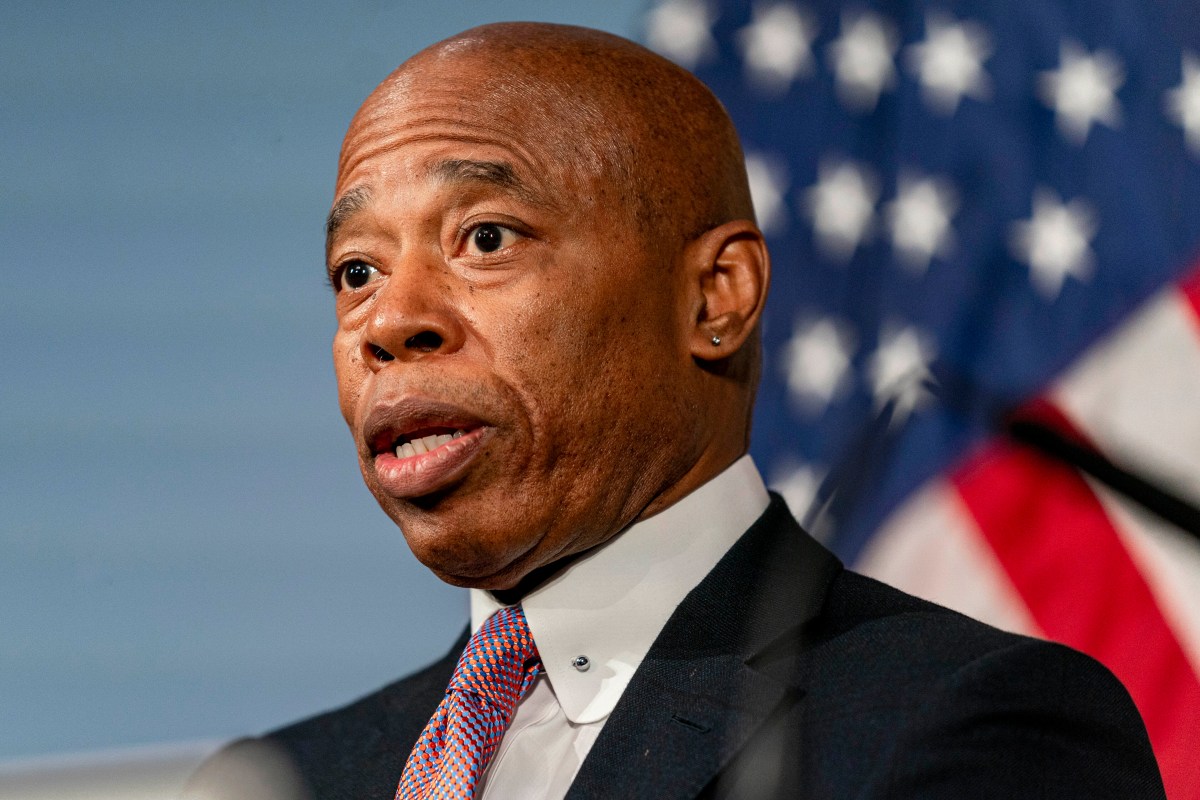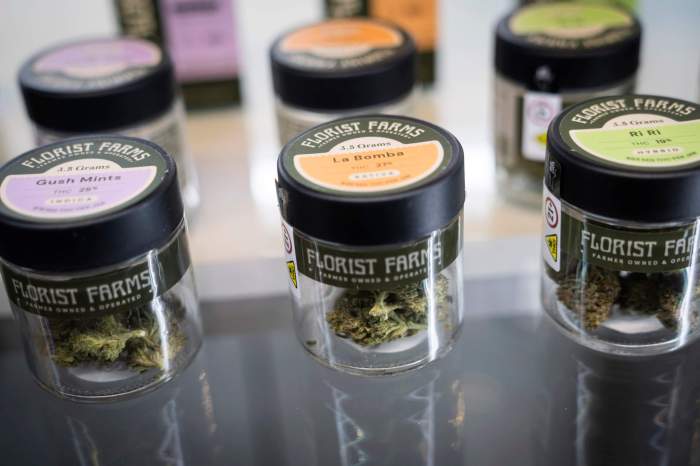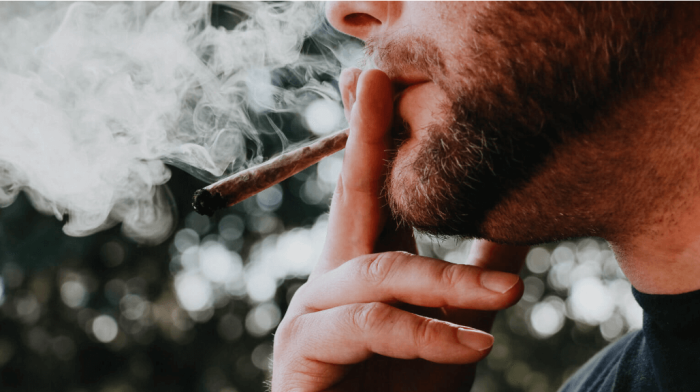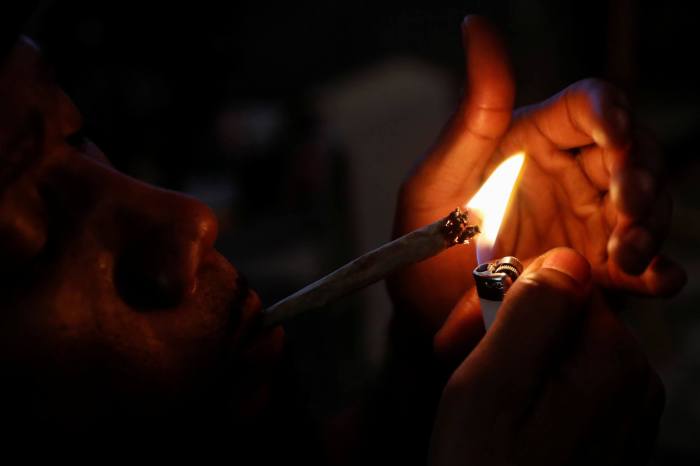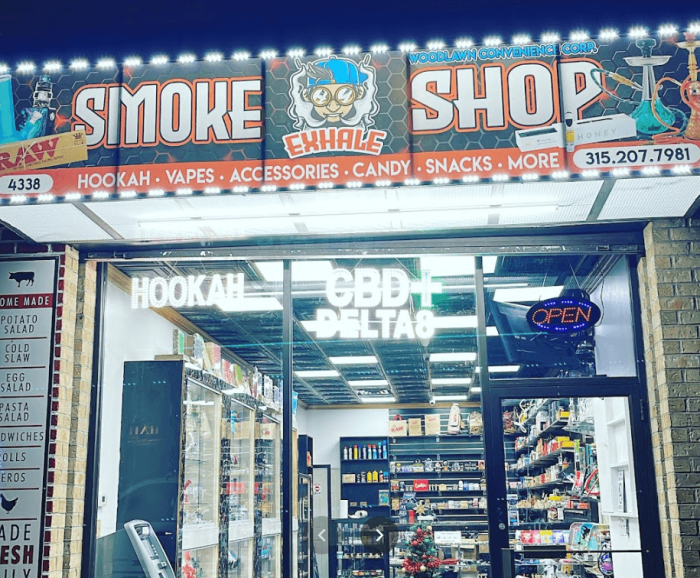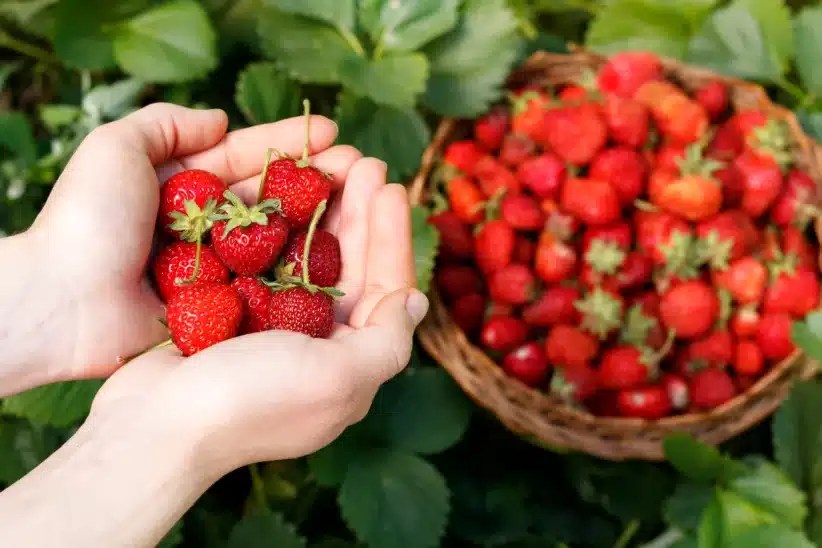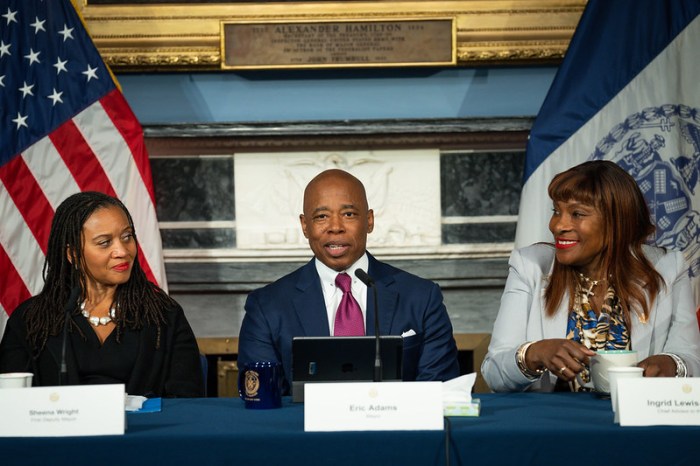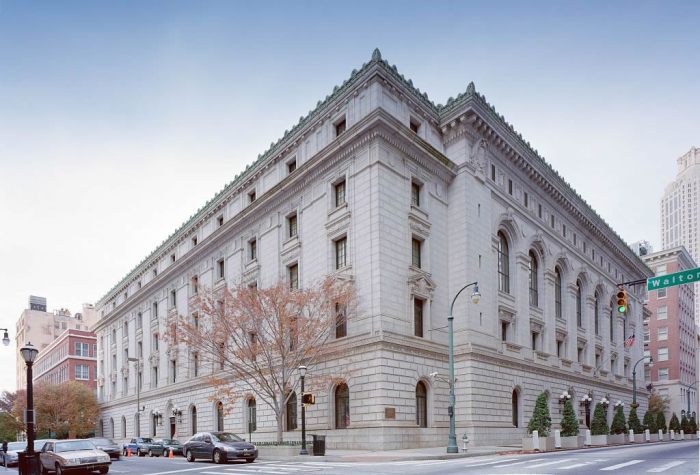To date, New York’s cannabis industry has made more than $16.5 million in retail revenue since opening its first dispensary in late December, and dozens more statewide since then, according to data provided at the May 11 Cannabis Control Board Meeting.
New York’s rollout is far from the first in the U.S., but is uniquely championed by the state’s cannabis leaders for being the first legal cannabis rollout to prioritize justice-based individuals — those harshly impacted by cannabis enforcement and convictions — into future operators in a potential billion-dollar industry.
There are 13 open and operating legal dispensaries statewide, with four of the six NYC-licensed recreational dispensaries located in Manhattan. Of those six dispensaries, three are justice-involved, while the other three are run through nonprofits.
“I would say New York’s legalization of cannabis has been unconventional, and it’s been spectacular. It’s gone above expectation and confronting a problem that we’re lucky to face,” said Trivette Knowles, a public affairs officer at the state Office of Cannabis Management (OCM). “We’re the first state to legalize cannabis with an equity focus. … Essentially, addressing the harms previously doled out by the government to communities disproportionately impacted by over policing and over criminalization of cannabis.”
A majority of the state’s dispensaries are owned and operated by Black New Yorkers, according to Knowles.
OCM estimated that of the 1.3 million cannabis-related arrests from 1980-2021, 57% of those arrests were Black and 25% were Hispanic. New York state paid more than $1.2 billion enforcing cannabis prohibition over that time span, meaning the state will need years to match that total in retail revenue.
But the equity-focused rollout has allowed individuals severely handicapped by decades-long cannabis enforcement to pursue entrepreneurial opportunities around the flower that was once criminalized against them.
The story of Queens dispensary Good Grades comes from the first-hand effect of cannabis policing and convictions that led to the deportation of dispensary owner Extasy James’ father to Jamaica.
Extasy James and her cousin, Michael James, received their license through the state’s Conditional Adult-Use Retail Dispensary (CAURD) license program, which prioritized licensure to operate for those impacted by cannabis prohibition and enforcement, and their family members.
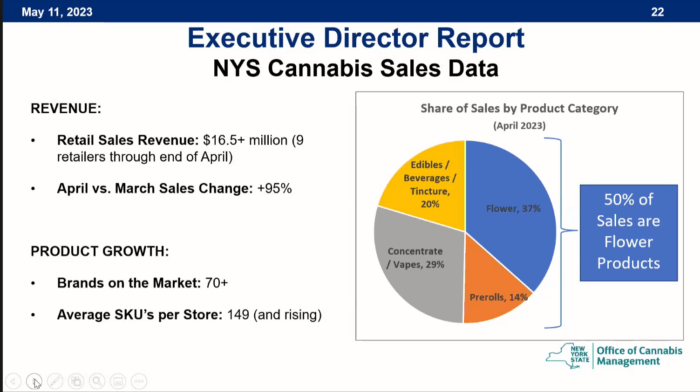
Good Grades, which is operating as a temporary pop-up, is located in the NYPD’s 113th Precinct, a predominantly Black and Afro-Caribbean section that was heavily impacted by cannabis criminalization.
“It’s a great opportunity being first in the market. You have people from these neighborhoods (impacted by cannabis enforcement) at the front of the line to guide how this industry is introduced into the neighborhood.” said Michael James. “We get to be a steward in the cannabis industry. … Those of us who knew this should have been legal a long time ago, we are now at the forefront of this industry.”
While the state’s cannabis retail industry is new, cannabis usage and an infrastructure that has relied on legacy operators is not. City dispensary owners are banking on the face-to-face interaction, cannabis innovation and reliability of tested products to grow the industry further.
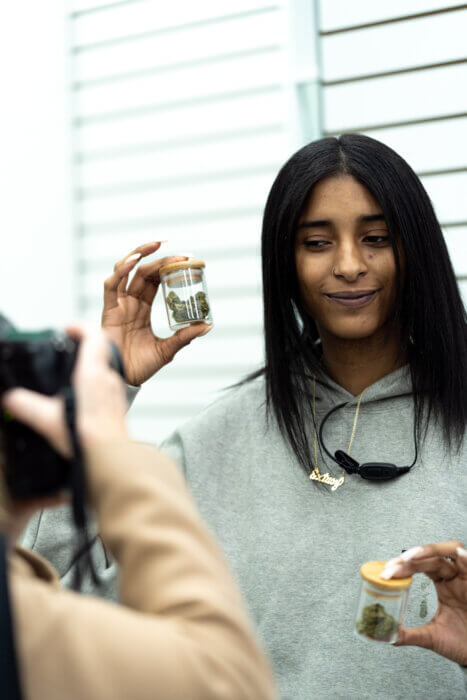
According to OCM’s Director of Policy John Kagiam, half of the state’s sales are flower products. Pre-rolls, in particular, are making up 14% of sales, which is twice the national average in other legal markets.
Cannabis officials say the convenience and portability of pre-rolls have made them popular, in addition to edibles — one-fifth of the state’s sales — which include cannabis-infused drinks, treats and sweets.
But the still-nascent industry has its fair share of growing pains. Michael James said that three challenges for operating dispensaries are, real estate financing and education.
Good Grades’ opening was supported by the New York State Social Equity Cannabis Investment Fund, a public-private partnership providing renovated retail locations. This summer, owners hope to begin permanent construction on a brick and mortar location, but that depends on the Dormitory Authority of the State of New York (DASNY), which oversees the construction phase.
And both city dispensary owners and state cannabis officials are still grappling with how to counteract the sale of illicit cannabis products in the city’s various smoke shops. A few Bronx and Brooklyn CAURD licensees told the Bronx Times they feel the illegal trade issue will continue if more investment isn’t poured into the outer boroughs.
For many in licensure limbo, the state’s cannabis entrepreneurial pipeline is inequitable, a few licensed NYC-based CAURD-holders told the Bronx Times. There are 215 individuals across the state with CAURD licenses, and roughly 16 out of a possible 20 Bronx licenses having already been granted.
The Bronx is without a legal dispensary, despite being one of the counties most impacted by cannabis enforcement, along with dispensary-less Brooklyn.
The target of 28 cannabis-related arrests in the Bronx’s 43rd Precinct — which accounted for some of the city’s highest marijuana arrest rates over the last 10 years — Castle Hill native Emmanuel De Jesus received his license on April 3.
De Jesus told the Bronx Times that he wants to provide a Bronx dispensary geared toward smokers, providing the “safe cannabis space” in the borough he wishes he had when he was younger and under intense policing. But De Jesus said that crunching deadlines to confirm locations with state officials and the lack of cannabis investors looking at the Bronx is a major hurdle.
“There’s all these conditions we have gone through such (as) when to open and how to go through the motions of the process, and it feels like there’s not a lot of investment to make it happen,” said De Jesus, who has experience working in the legal cannabis industry. “It’s not like (the state) rolling out the red carpet for us.”
De Jesus said that retail locations will be presented to licensees in a “take or leave it” offer, which may not be financially sustainable for CAURD licensees without significant public or private backers.
DASNY can reject proposed locations as well as secure locations for the CAURD licensees.
On May 9, a 8 licensee sent an open letter to DASNY, along with OCM and the Cannabis Control Board, over issues that have stalled their efforts to turn their licensure into a physical retail location.
The Bronx Times reached out to DASNY regarding the proposal of retail locations, and has not received a response.
A CAURD license can be renewed two years from the date one was awarded. The conditional period for the license ends four years from the initial date the license is granted.
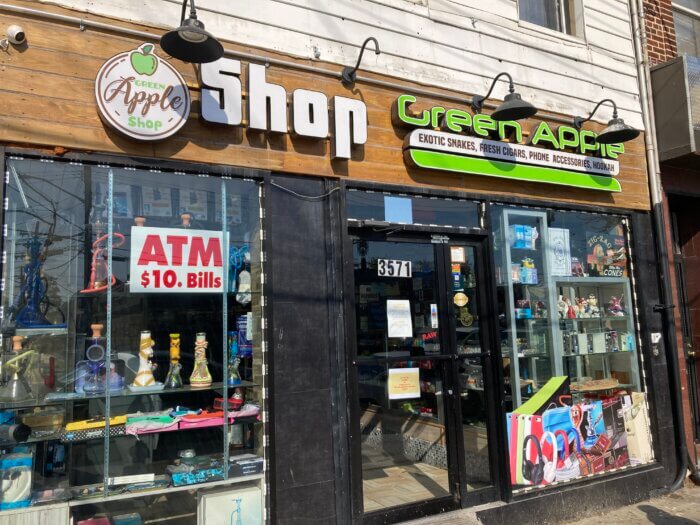
From the time of licensure, Knowles said, it generally takes a minimum of two to three months to actually open a dispensary. And even though businesses operate on their own timeline and not in accordance with the state, he said OCM understands that one of the most restrictive barriers is accruing the necessary capital to start.
One of the ways CAURD licensees can expedite their sales and get their businesses up and running, he said, is by implementing a delivery service — which the Cannabis Control Board approved last December.
But Bronx CAURD licensees say they feel like they are “years” away from an opening date. And some, like De Jesus, are pooling resources together with other licensees in the borough to bring the Bronx its first dispensary. De Jesus said he would like the state to create and coordinate more networking events between licensees and those seeking to be investors in the state’s cannabis market.
“We’re trying to open dispensaries where we grew up. Maybe it takes a community effort from all of us to do that, but I think we’re all going through this together and experiencing the difficulties that come with this,” said De Jesus. “I’ve been arrested so many times, and now that I have this opportunity, the last thing I want to do is drop the ball.”

